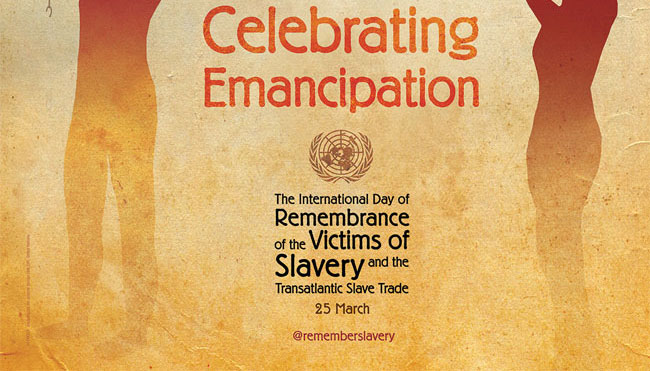Message of the United Nations Secretary-General
The transatlantic slave trade raged for 400 years and claimed more than 15 million victims. Africans and people of African descent were victims of these brutal acts and continue to suffer the consequences.
On the International Day of Remembrance of the Victims of Slavery and the Transatlantic Slave Trade, we tell the world to never forget this global crime against humanity.
We must never forget the torture, rape and killing of innocent men, women and children, the families that were separated, the lives that were uprooted, and the horrific conditions on slave ships, plantations and at slave markets. These degradations cannot be buried by time; they must be examined, understood and addressed.
As we reflect on the contemporary consequences of this tragedy, let us remember the bravery of those who risked everything for freedom and those who helped them on that perilous path. Their courage should inspire us as we struggle against contemporary forms of slavery, racism, racial discrimination, xenophobia, and related intolerance.
This year, along with somber reflection, we have special reason to celebrate. We mark 150 years since Abraham Lincoln issued the Emancipation Proclamation, freeing millions of African-Americans from enslavement.
This year also marks other milestones. In 1833, slavery ended in Canada, the British West Indies and the Cape of Good Hope. Some 170 years ago, the Indian Slavery Act of 1843 was signed. Slavery was abolished 165 years ago in France; 160 years ago in Argentina; 150 years ago in the former Dutch colonies; and 125 years ago in Brazil.
On this Day, let us pledge to honor and restore the dignity of affected people and to intensify efforts to eliminate the remnants of slavery that persist in our world.






